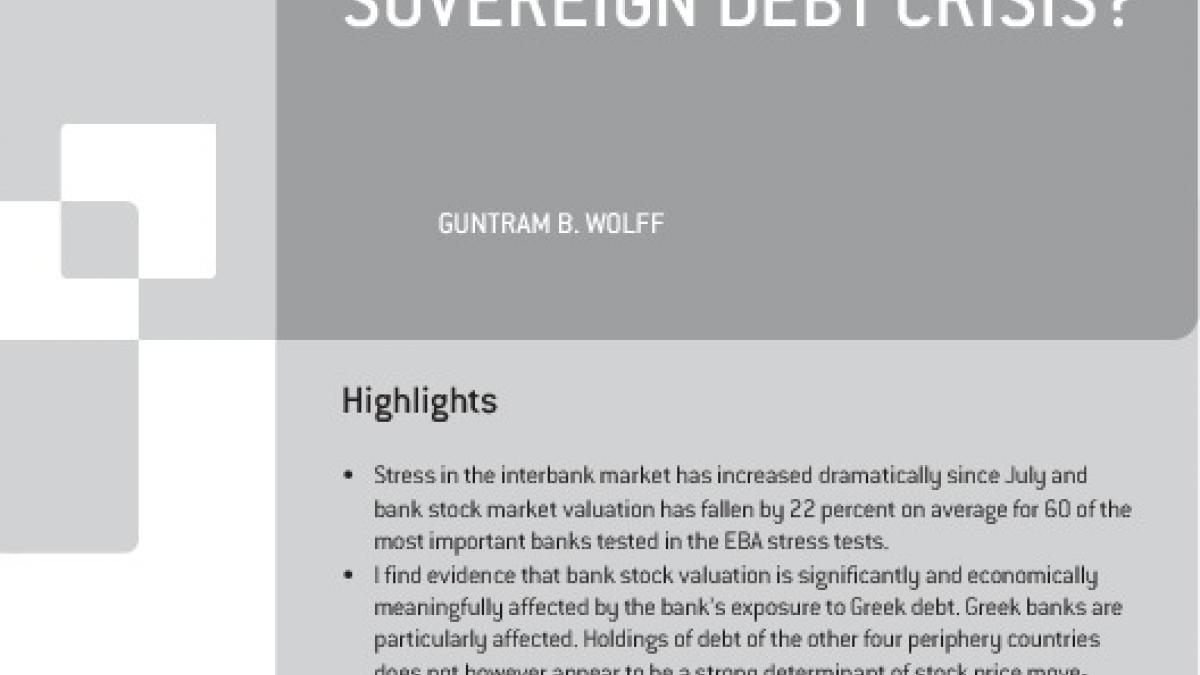Is recent bank stress really driven by the sovereign debt crisis?
Ahead of the European Council meeting on 23 October, the author outlines how EU Heads of States should focus on restoring confidence in euro-area po

Stress in the interbank market has increased dramatically since July and bank stock market valuation has fallen by 22 percent on average for 60 of the most important banks tested in the EBA stress tests.
I find evidence that bank stock valuation is significantly and economically meaningfully affected by the bank’s exposure to Greek debt. Greek banks are particularly affected. Holdings of debt of the other four periphery countries does not however appear to be a strong determinant of stock price movements. Policy announcements of 21 July of no haircut on any sovereign but Greece appear to be perceived as credible.
The exposure to Greece cannot explain the general and large decline in euro area banks’ market cap. Instead, a general confidence crisis of the euro area banking system, or more deeply the euro area construction, might be driving the fall in stock prices.
The summit of 23 October should focus on restoring confidence in euro-area policymakers’ ability and determination to put the euro area on a sound footing. Recapitalisation of banks can only be only one aspect. A credible solution to Greece and a way forward for the larger institutional set-up, including a federal fiscal back-stop of the banking system, are of at least equal importance.



